
Producing over 40% of teachers in South Africa
Fulbright Specialist Scholar and international education advisor, Prof Raj Sashti, urged universities to implement initiatives that would promote internationalisation and globalisation. He spoke during his visit to Unisa on 12 March 2020, where he was hosted by the university’s Strategic Partnerships Directorate and the College of Education (CEDU).
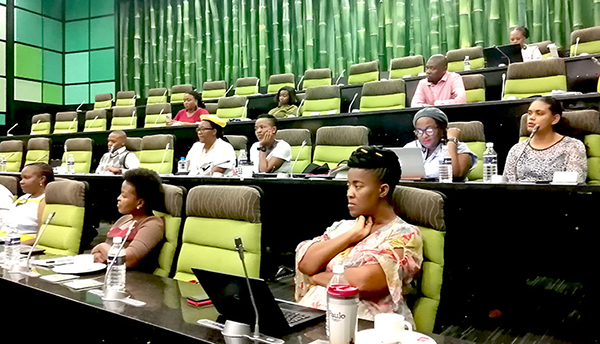
The attendees were honours, master's and doctoral students, and staff from Unisa
Speaking about the importance of internationalising the education system, Sashti said, "globalisation and internationalisation do not only end at college level, but they start in high school." He stated that it was important for leaders in education to prepare and assist students to participate in world issues. "They need to think locally, but also act globally," he said.
Moreover, Sashti noted that universities needed to integrate aspects of Africa into studies to help students overcome stereotypical images about the continent. However, his speech urged students to have an economic way of thinking while embracing Africanisation. "Our leaders tell us that we need to have an African identity, but they send their children to international schools. We got rid of colonisers, but we have corrupt leaders."
Preparing the students for the future, Sashti stated that the cost of labour was too high; having a degree did not guarantee graduates anything. People preferred cheap labour while technology allowed people to work anywhere in the world. His advice was that universities should produce students with an entrepreneurial mindset. "We want our students to become employers and not employees," he affirmed.
Sashti mentioned that one cost-effective way of internationalising is to get successful business people to come and talk to students. He advised that their journey and guidance would help students to understand what it takes to survive at the top. "We should not resort only to those with master’s and PhDs to teach."
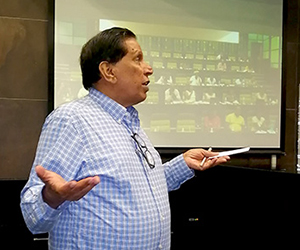
Prof Raj Sashti (Fulbright Specialist: Georgia Institute for Technology, Atlanta) said that internationalisation in higher education carries a multidisciplinary approach that is cross-cutting on all aspects of the institution.
During a question-and-answer session, Sashti highlighted the importance of differentiating between the economy and culture, especially when talking about internationalisation. As much as he told the audience not to abandon their roots, he also emphasised that most people have been more international than local.
Sharing his experiences, Sashti said they had the same challenges in India about languages and identity. He said the country had 22 languages and this was why English became the international language of business in his country. "We all need money to have economic status and culture depends on a person to speak their language as well as promote their tradition," he concluded.
Unisa is the first university in South Africa to have a policy on internationalisation, said Siza Magubane, Deputy Director of Strategic Partnerships, during her vote of thanks. "We will be able to make the difference we want for our students to be part of the world," she said. "Despite the fact that we are an open, distance and e-learning institution, we have managed to initiate international exchange programmes."
Sashti was granted an opportunity to visit South Africa by the United States Department of State and the Fulbright Board of Foreign Scholarships. During his six-week engagement with universities, which started in February 2020, he visited Unisa on a two-day residency on 11 and 12 March 2020.
Established in 1946, Fulbright is a flagship educational exchange programme sponsored by the US government and designed to increase mutual understanding between the United States and other countries.
Unisan stakeholder meetings during the visit included courtesy visits with vice-principals, public presentations on excellence in leadership, internationalisation seminars, and one-on-one sessions with students and academic and non-academic staff. Engagements also included exchanging information on internationalisation within institutions of higher learning and enhancing international opportunities. Moreover, meetings looked at strategies aimed to improve internationalisation practices, collaborations, and sharing opportunities for international scholarships and best practices in securing international opportunities for funding in academic activities.
In addition to highlighting the advantages and disadvantages of internationalisation in higher education, engagements advocated for a stringent need to prepare students as leaders in education and equip them to a level of readiness to participate on international platforms. This could be attained through introducing infusing models, concepts and methods that could be integrated into current academic discourses and curriculums without extending the duration of study, especially when Unisa is aiming to advance the Africa Agenda.
* By Lesego Ravhudzulo, Journalist, Department of Institutional Advancement & Kelebogile Moruane, Project Coordinator: Strategic Partnerships, Department of Institutional Advancement
Publish date: 2020-03-18 00:00:00.0
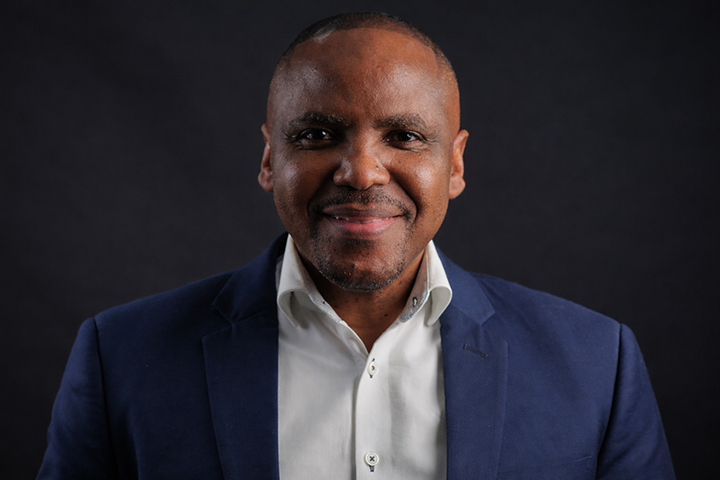 National leader in mathematics education aims to improve outcomes
National leader in mathematics education aims to improve outcomes
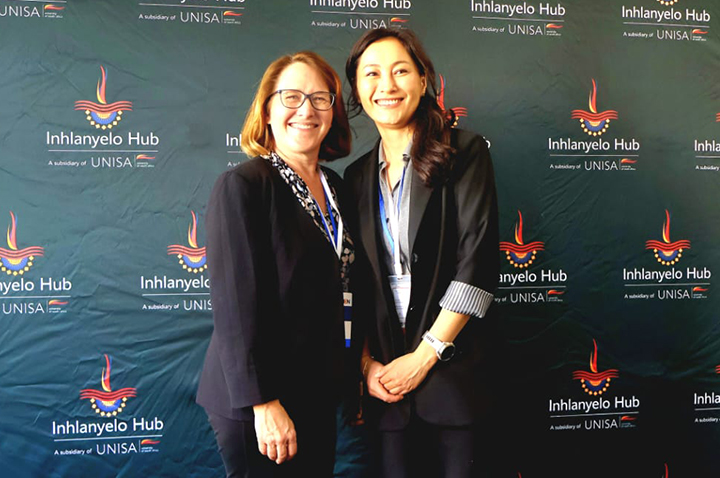 Unisa roundtable focuses on empowering SA women to lead in innovation
Unisa roundtable focuses on empowering SA women to lead in innovation
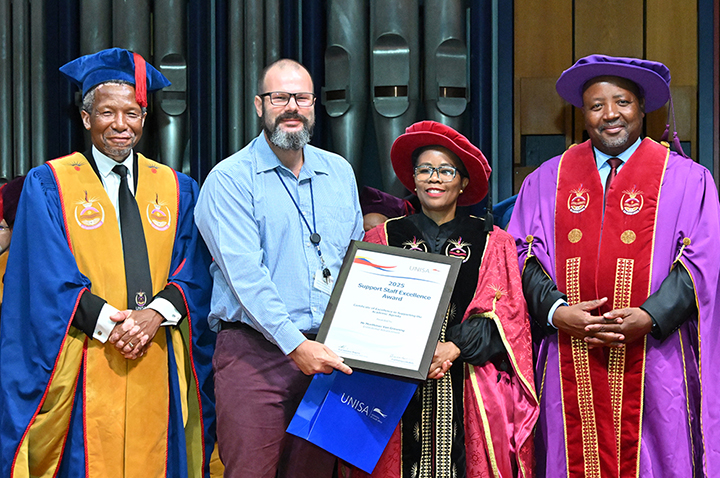 Unisan recognised for web excellence
Unisan recognised for web excellence
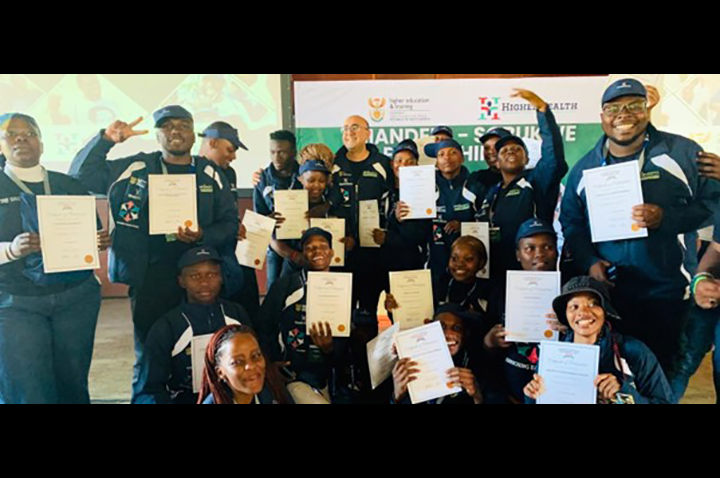 Office of the Dean of Students participates in leadership camp
Office of the Dean of Students participates in leadership camp
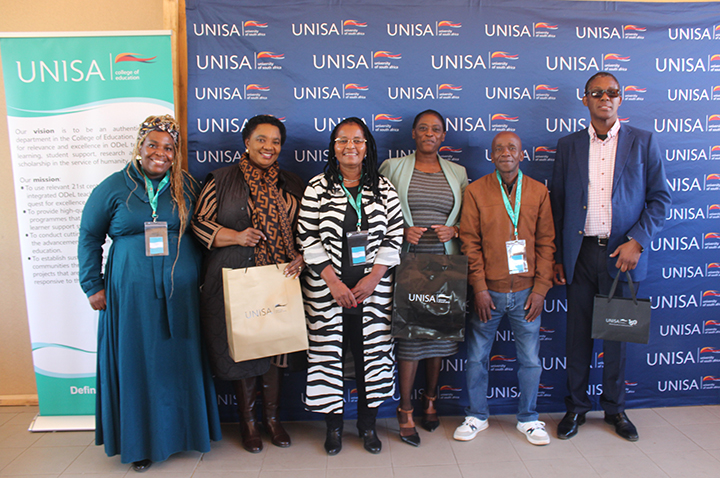 Unisa project fosters digital and pedagogical innovation in Limpopo schools
Unisa project fosters digital and pedagogical innovation in Limpopo schools